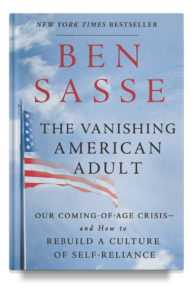How to think about campaign finance reform.
Campaign finance reform was, for decades, an issue with bipartisan interest. A well-functioning Federal Elections Commission (FEC) and the passage of The Bipartisan Campaign Reform Act of 2002, better known as McCain-Feingold, were emblematic of that. But 2010 was a turning point. That year, the Supreme Court ruled in Citizens United v. FEC that the First Amendment guarantees the right of nonprofit organizations, for-profit businesses, labor unions, and other associations to spend unlimited dollars on independent expenditures. In other words, these organizations can spend as much money as they want on political speech, as long as they do it independently, without coordinating with the official campaign or an “agent” of the campaign. After the ruling, not only were the floodgates open for campaign fundraising and spending, but serious interest in changing the system seemed to evaporate within Congress.
Why does it matter? For one, while the amount of money being spent on campaigns is exploding, fewer and fewer individuals are contributing, which means that a small number of individuals and groups are having an outsized influence on the process and the messaging voters are hearing. This contributes to the perception that individuals can’t influence policy and that their lawmakers don’t really work for them, but are instead simply beholden to large donors. It distorts the political process for the average American and degrades their trust in their elected officials. It also means that the political process now favors the wealthy or those with the support of the wealthy. Campaigns are incredibly expensive and a candidate without the ability to self-fund or raise an enormous sum has little chance of succeeding, especially when matched against an incumbent with a significant war chest that grows larger every year.
The flood of independent expenditures into the political system also raises interesting questions about campaign finance limits. Why can an organization promoting a candidate with whatever messaging they think encapsulates a candidate’s positions raise unlimited dollars from individuals, while the campaign itself is limited to raising only $2,700 per person per election? Between those two entities, who is more deserving of unlimited speech promoting the candidate’s messaging? And what’s so magical about $2,700? Why have we decided that that’s an appropriate limit to place on individual contributions and not double that? Or half that? Are arbitrary limits good policy?
Given the Supreme Court decision in Citizens United v. FEC, it’s not clear if Congress has the ability to legislate any sort of restrictions on super PAC spending. As a result, discussion of campaign finance reform is largely missing from the political conversation these days. Many believe it will take a constitutional amendment – or a different make up of the Supreme Court – to see any real change in this area of regulation.

 A101 Team
A101 Team 